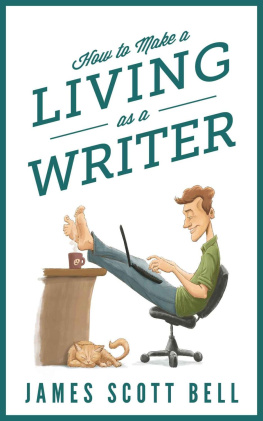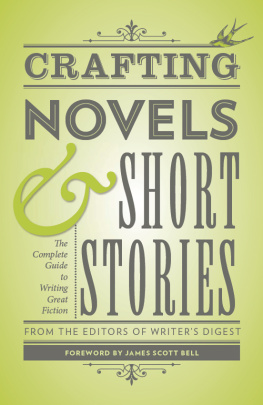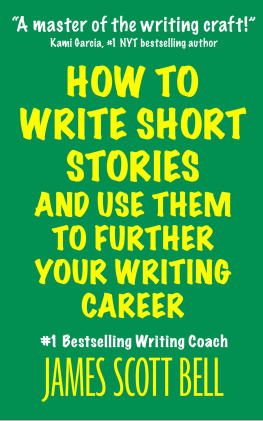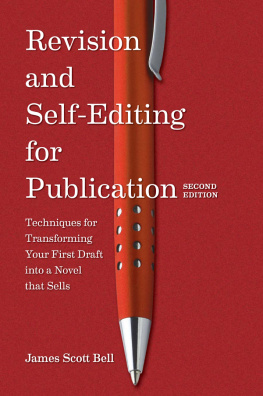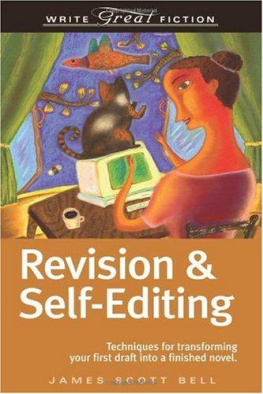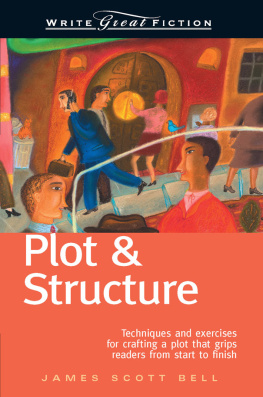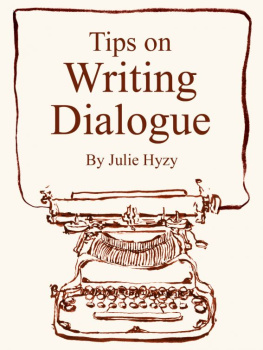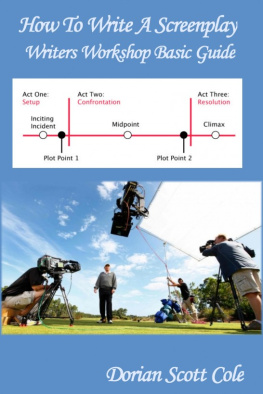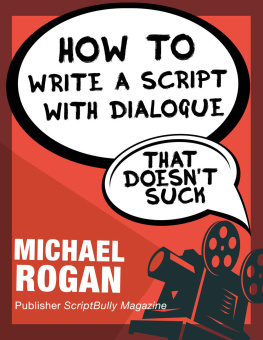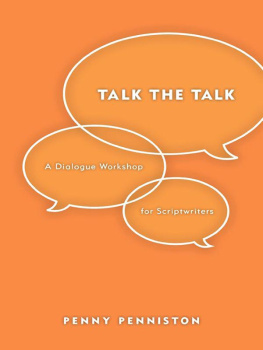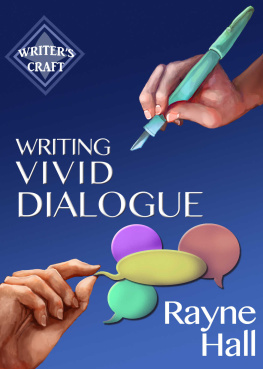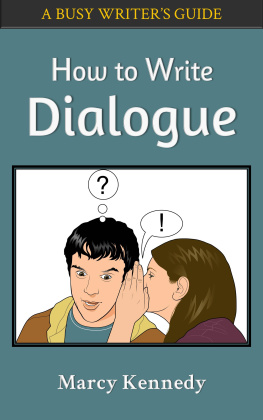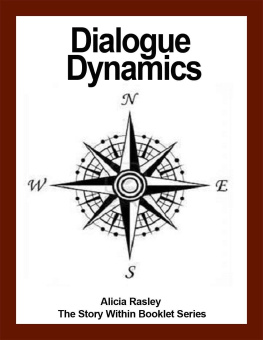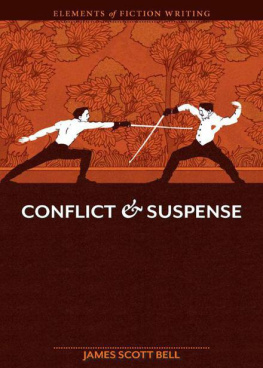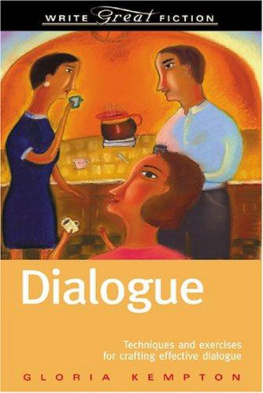Contents
1
The Fastest Way to Improve Any Manuscript
You are an editor or agent looking over a pile of fiction proposals. You've poured your coffee, you issue a big sigh, and look at the first project of the day. You skip the cover letter and synopsis. This saves you time. For if the writing is terrible, or even mediocre, you don't have to bother with the rest. The cold, hard reality of manuscript submissions is that after all the work on the query letter and all the stress of trying to perfect a synopsis, it's the first couple of pages of the sample chapters that will likely determine the fate of the author.
So let's say you look at project number one, and it goes something like this:
CHAPTER ONE
Monica sat on the park bench and looked at the bustling activity before her. Boys and girls played in the sandbox. A man was throwing a Frisbee to his dog. The dog ran fast across the green grass and jumped into the air, catching the whirling disc in its mouth. Oh, the joy of that dog. If only Monica could recapture some of that exuberance!
How long had it been since Richard had left? Two years? She should have been over it by now. But her life alone had taken on a sameness and a safety, and perhaps that was as it should be. There was a hole in her heart that only Richard could fill. Hole? No, a wound.
When she was eight years old, Monica had set her heart on owning a show pony. She saw it one day at a horse show in town. Her father had taken her there as a reward for
Let me ask, do you care about what the reward was for? Hasn't the narrative, slow to begin with, now ground to a halt with a visit to the past?
But the main problem I see is what I call the "character alone, thinking" opening. It's all too common in manuscripts from new writers.
So you toss that proposal aside and pick up the next one.
CHAPTER ONE
"I simply will not have it!" Robert Massingale expostulated. "Not while I am the head of this family of five. Goodness knows it is hard enough to run an estate during the reign of Her Majesty, Queen Victoria. But having a servant from Hungary come into this house without the proper references, and with a scar across his left cheek to boot, which he no doubt got in a waterfront bar somewhere during his thirty years on this earth, I tell you, I simply will not have it."
"Of course," Janet Massingale, his wife of thirty-three years, agreed. "You always know best."
"Thank you, my dear," said Robert gratefully. "Shall I ring for tea?"
"Do, yes, and please have Caldwell, our butler, serve it in the library. I do so enjoy looking out at our estate, which is far enough away from London that we may consider ourselves country folk."
Egad! Bloated, expository dialogue. No two people in the real world would talk to each other that way. It's clear the writer is trying to slip information to the reader, and doing it ham-fistedly.
You pass on that one. It's beginning to look like a very long day. Maybe you'll stop here and play some Fruit Ninja while you finish your coffee.
But no, you've got to make a dent in this pile, so with another sigh you take up proposal number three. And here is what you see:
CHAPTER ONE
"Any thoughts that you'd like to start with?"
"Thoughts on what?"
"Well, on anything. On the incident."
"Oh, the incident. Yes, I have some thoughts."
She waited but he didn't continue. He had decided before he even got to Chinatown that this would be the way he would be. He'd make her have to pull every single word out of him.
"Could you share them with me, Detective?" she finally asked. "That is the purpose of"
You stop mid-sentence. This has more promise than the other two you've read. It's because the dialogue is crisp and tense.
Which means you are immediately more confident that this writer knows what he's doing. So you pause and check out the author's name. Michael Connelly. Hmm. The book is titled The Last Coyote.
You go back to the chapter, and the dialogue continues to shine.
Which is why you read on.
Dazzling dialogue has done its job.
But what if you don't want to be an agent or editor in this hypothetical? Maybe you've decided to go into self-publishing, and all you care about are readers.
The same dialogue dynamics apply. Readers react just like the industry pros, only on a subconscious level. Great dialogue increases their confidence in the author. That, in turn, makes it more likely they'll finish your book.
On the other hand, flabby dialogue will dull the motivation to read on.
Which kind of makes dialogue important, don't you think?
Indeed, I believe dialogue is the fastest way to assess the skill of a writer of fiction.
This means it's also the fastest way to improve your manuscript.
And that's why I've written this book.
When I was first learning the craft of fiction I did not find much helpful material out there on dialogue. Since I was writing screenplays at the time, I had to figure out that part, and fast, because scripts are virtually all about characters talking to each other. So I read a ton of screenplays and novels, taking special note of the dialogue.
I took notes on what I learned, came up with some techniques and tools, and applied them to my own fiction. Some years later, after I was a published author, I began to teach these techniques in my workshops on the fiction craft.
That material is now presented in this book.
Let's start with a definition of fictional dialogue. What it is and what it isn't.
2
What Dialogue Is ... And Isn't
One day I was sitting happily in Starbucks, doing some reading, when the bane of civilized society plunked down at a table nearby. I am referring to the ubiquitous loud-and-obnoxious phone talker (or loud-ob for short).
You know what I mean (and I hope you're not one of them!) They put the phone to their ear and think they have to kick up their voice several decibels in order for the other party to hear them. Every word they utter breaks the sound barrier of social etiquette, and lays waste to any hope of calm reflection by the neighboring victims.
Further, this particular loud-ob was the worst varietythe kind who does most of the talking, and keeps it up as if the conversation were a marathon. This loud-ob seemed like she could yak for a week. And, as far as I could tell, she was talking about absolutely nothing of consequence.
Luckily I had my noise-canceling headphones and iPod with me. But before piping some smooth jazz into my ears, I took a moment to type up some of the stuff she was saying:
"Okay, listen, I think he knows about me, but, you know, what I'm saying is, to him, is that you have a hard time doing what's right, what you do is so other worldly, and Megan needs to hear it, the very thing that you're dreading is in an odd way the thing you need. Does that make sense?"
Um, no, I wanted to shout. So you don't need to go on!
Okay, maybe to the loud-ob phone talker it made sense, but not to anyone else. And that means we have here an instance of what fictional dialogue is not. The talk that comes out of your characters' mouths must always have a purpose. Yes, sometimes that purpose might be to blather, but only because such blathering is a way for the character to accomplish something. More on that below.
What Dialogue Is
The definition of dialogue I like best comes from a well-known playwright and screenwriter named John Howard Lawson (blacklisted, I might add, during the McCarthy era). In his book, Theory and Technique of Playwriting, Lawson states that dramatic dialogue should always be "a compression and extension of action."


